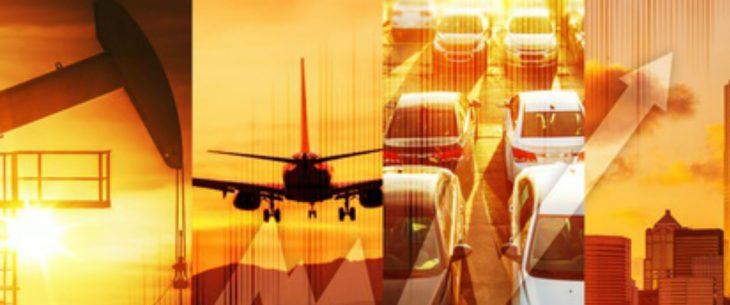National and state economies facing unique headwinds in 2022
by January 27, 2022 1:24 pm 459 views

Predicting how state, national, and international economies will perform in the coming years is a challenging task, Northern Trust vice president and senior economist Ryan Boyles said at the 2022 Economic Outlook Conference on Wednesday (Jan. 26). The conference was held at the First National Bank Arena on the campus of Arkansas State University in Jonesboro.
COVID-19, inflation, supply chain issues, consumer confidence, and interest rate hikes will all play a role, he said. Inflation has been at its highest levels in decades with a yearly growth rate of about 7.1%, primarily driven by higher energy costs.
Inflation has started to tick down in recent months, however, and it has been offset by worker wage growth, Boyles said.
“Our opportunities to spend money are back and we are spending,” he said.
The Omicron variant of COVID-19 is rampant across the globe right now and it appears that many countries have developed ways to keep their economies open while fighting the virus, he said. But, there is one country that continues to battle the virus by locking down and that country is China.
Why is that a problem?
China has essentially turned itself into a “global factory,” Boyles said. Shutdowns in China have ripple effects across the planet. The Chinese have refused to use vaccines developed in western countries and their own vaccines have been less than effective, he said. A new batch of vaccines is expected to be doled in the country in the coming months and the hope is that the shutdowns will be minimized.
“The whole world depends on China,” he said.
Global supply chains have always been fragile. Throughout the last several decades the chains have operated at optimal efficiency, meaning a product can be built in China and be on a shelf days later in the U.S. This “efficiency squeeze” on the surface appears to be a good thing, but when the supply chain started to crash due to the virus, there were no ways to change it to make it more effective.
Small changes have helped, Boyles said. In 2021, there was a lot of news coverage of cargo ships stuck at sea trying to port in California. Under the old system, ships would radio the port 100 miles from shore to get an unloading crew ready. Now those ships radio the port when they leave their own ports and this has helped to tamp down the cargo ship bottlenecks, he added.
Unfortunately, many economists expect supply chain issues to worsen in 2022, Boyles said. The workforce is shedding thousands of workers on a daily basis, meaning those who chose to work will have more power when it comes to wages and benefits, he added.
Arkansas’ economy has performed slightly better than the national economy during the pandemic and that is expected to continue throughout 2022, Arkansas Economic Development Institute State Economic Forecaster Dr. Michael Pakko said during the conference.
“The economic shut down here was not nearly as bad here as it was around the country,” he said.
The shortest recession in U.S. history started in February 2022, one month prior to the pandemic. It ended in April. The recession was stymied by consumer spending, partially fueled stimulus payments provided by the federal government, he said.
This recovery in Arkansas has led to a dramatic drop in the jobless numbers and in wage growth. This was fueled by job growth in the retail and food sectors. He noted that Craighead County now has an unemployment rate of 1.6%, and the highest rate for any county is a paltry 5.2% in Chicot County.
Demand for goods in this economy has been robust but demand for services has declined, he said. This is unusual during a recession recovery period, he said.
The economy will grow modestly in 2022 and then slow in 2023, Pakko said. The Federal Reserve will raise interest rates two or three times during the next year. Debt market pressures will be one long-term issue, and he agreed with Boyles about further supply chain issues.
“We’re in a weird situation. We can see that the economy is not hitting on all cylinders yet,” he said.
